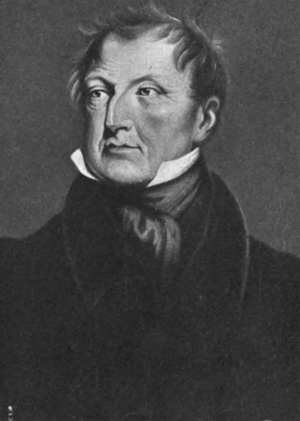Richard Martin (Irish politician) facts for kids
Quick facts for kids
Richard Martin
|
|
|---|---|
 |
|
| Member of Parliament for County Galway |
|
| In office 1818–1826 Serving with James Daly
|
|
| Member of Parliament for County Galway |
|
| In office 1801–1812 |
|
| Member of Parliament for County Galway |
|
| In office 1800–1801 |
|
| Member of Parliament for Lanesborough |
|
| In office 1798–1800 |
|
| Member of Parliament<for Jamestown | |
| In office 1776–1783 |
|
| Personal details | |
| Born | 17 January 1754 Dangan, County Galway, Ireland |
| Died | 6 January 1834 (aged 79) Boulogne-sur-Mer, France |
| Political party | Independent |
| Other political affiliations |
Patriot Party (1776–83) |
| Spouses | Hon. Elizabeth Vesey (divorced 1791) Harriet Evans Martin (m. 1794) |
| Education | Harrow School |
| Alma mater | Trinity College, Cambridge |
| Occupation | Politician, animal welfare campaigner |
| Military service | |
| Allegiance | |
| Branch/service | Yeomanry Irish Volunteers |
| Rank | Colonel |
| Unit | Ballynahinch Yeomanry County Galway Volunteers |
Colonel Richard Martin (born January 15, 1754 – died January 6, 1834) was an Irish politician. He is most famous for his work to stop cruelty to animals. People called him "Humanity Dick." This nickname was given to him by King George IV. He helped pass a very important law called the Cruel Treatment of Cattle Act 1822. This law, often called 'Martin's Act', was one of the first of its kind in British history.
Contents
Who Was Richard Martin?
Richard Martin was born in Dangan, County Galway, in Ireland. He was the only son of Robert Martin and Bridget Barnwall. His family was well-known in Galway. He grew up at Dangan House, near the Corrib River.
Early Years and Education
Richard's mother died when he was nine years old. His family had been Catholic, but Richard was raised as a Protestant. He became a very rich landlord in Ireland. He went to school in England at Harrow School. Later, he studied at Trinity College, Cambridge. He also trained to be a lawyer and worked in Ireland. In 1782, he became the High Sheriff of Galway.
Starting His Political Journey
Richard Martin became a member of the Irish House of Commons in 1776. He represented different areas over the years. He strongly supported Catholic Emancipation, which meant giving more rights to Catholics in Ireland. After the Act of Union 1800, Irish politicians had to sit in the Parliament of the United Kingdom in London. Richard Martin continued to represent County Galway there. He was known for his lively speeches and often interrupted others. He kept working for Catholic rights until 1826. He also worked to end slavery in British lands.
Fighting for Animals: "Humanity Dick"
Richard Martin is best remembered for his efforts to protect animals. He worked hard to stop cruel activities like bear baiting and dog fighting. Before him, others had tried to pass laws against animal cruelty, but they failed.
Protecting Animals from Cruelty
People in the late 1700s and early 1800s started to feel that some animal treatments were wrong. They didn't like things like bull-baiting or how animals were treated at markets. Richard Martin wrote a new law with help from others. This law was called the "Ill Treatment of Cattle Bill." It passed in 1822 and became known as Martin's Act. This was a huge step for animal welfare.
Martin also tried to spread his ideas in London. He sometimes paid fines for people who were cruel to animals. He was even made fun of in cartoons, but he kept fighting for what he believed in.
Starting the RSPCA
In 1824, a man named Rev. Arthur Broome held a meeting in London. He wanted to create a group to prevent cruelty to animals. Richard Martin was at this meeting, along with other important people like William Wilberforce. They voted to create the Society for the Prevention of Cruelty to Animals. This group later became the RSPCA.
Many people thought Richard Martin started the RSPCA because of his famous law. But he made it clear that Rev. Broome was the true founder. Richard Martin continued to support the Society even after he moved to France.
An Adventurous Life
Richard Martin had a very exciting life. He was a colonel in the County Galway Volunteers, a local military group. He survived two shipwrecks, which is amazing! He also fought in over a hundred duels, earning him the nickname "Hairtrigger Dick." He traveled a lot in Europe and America. He was even in America when the American Revolutionary War started. In 1783, he opened Galway's first theater.
He knew many famous people of his time. These included King George IV (who gave him his nickname), and important politicians like William Pitt.
Life in France
After an election in 1826, Richard Martin lost his political seat. He had to leave Ireland quickly and move to Boulogne, France. He could no longer use his special protection as a politician to avoid being arrested for debts. He passed away peacefully in France on January 6, 1834, with his second wife and daughters by his side.
Family Life
Richard Martin was married twice. His first wife was Elizabeth Vesey. They had nine children, but only three lived past childhood. His son, Thomas B. Martin, became his heir.
In 1793, he married Harriet Evans Martin, who was a writer. They had four children who survived. One of their daughters, Harriet Letitia Martin, also became a writer. Even when living in France, his family stayed connected to people who supported animal welfare.
Images for kids
 | Jessica Watkins |
 | Robert Henry Lawrence Jr. |
 | Mae Jemison |
 | Sian Proctor |
 | Guion Bluford |



